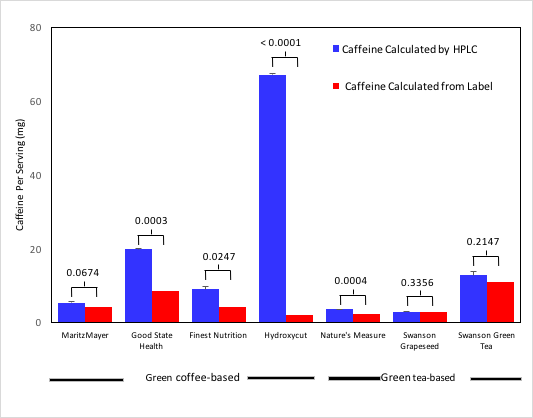Variation in Caffeine Concentration Among Different Weight Loss Supplements Containing Green Tea and Green Coffee Extracts
(1) Homestead High School, Cupertino, California, (2) Molecular Medicine Research Institute, Sunnyvale, California
https://doi.org/10.59720/16-028
Many dietary supplements have caffeine as an active ingredient. Because they are supplements, they are not required by the FDA to state the concentration of caffeine they contain. The purpose of this study was to find the actual amount of caffeine in various supplements, specifically those that include green tea and green coffee extract. We analyzed the dietary supplements, green coffee, and green tea by high-pressure liquid chromatography to compare the amounts of caffeine in each. We found that the amount of caffeine in all of the supplements tested was higher than the predicted value. This was expected as extracts should be more concentrated than their original substance. In addition, the supplements differed from each other in their caffeine content, with a range of 5.33 to 67.2 mg/serving in green coffee–based supplements and a range of 2.97 to 12.85 mg/serving in green tea–based supplements. An ANOVA test revealed significant differences between brands in most pairings and a t-test revealed significant differences between expected caffeine content and actual caffeine content found by HPLC. This supports our hypothesis that the resulting extracts from different preparation methods can vary significantly in caffeine levels. This variation may raise health and safety concerns as the ingredients list does not tell consumers how much caffeine they are ingesting.
This article has been tagged with: